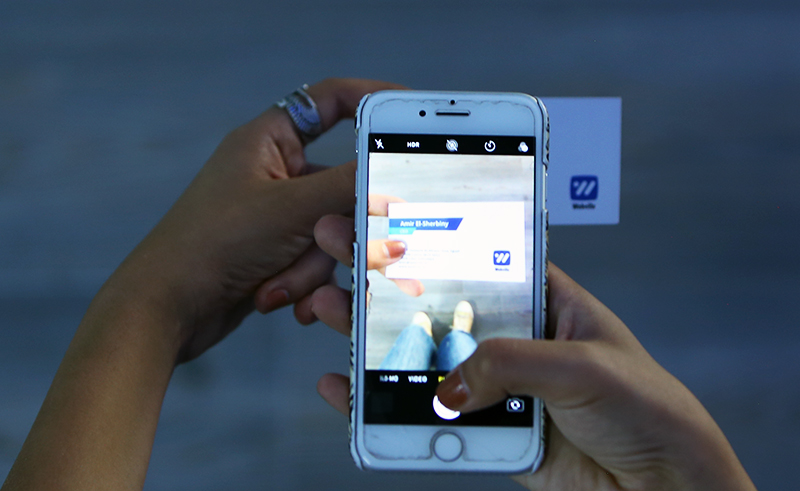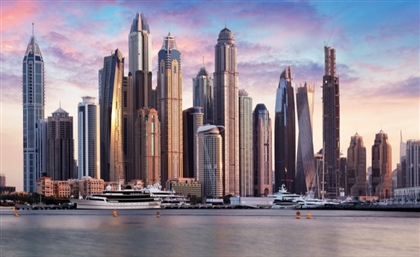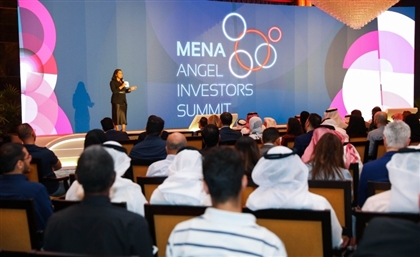If Business Cards Become Obsolete In The Digital Age, What Next?
In the era of Bump, My Name Is E and JumpScan, we ask 5 Middle Eastern entrepreneurs how effective business cards for networking in the startup ecosystem.

In college, they taught us that having business cards is a vital element for career growth. I remember my professor told us about an embarrassing story related to business cards; she had travelled to London to escort a group of Mass Communication students enrolled in a Reuters workshop. One time, she found herself surrounded by many professors who were interested to know more about who she was and started handing out business cards, expecting to get hers in return – but she had none. “I started cutting off strips of paper, on which I wrote my number and e-mail address,” she said. “It looked so cheap, I went red in the face. I learnt my lesson the hard way.”
Today, there are several apps that make it easier to exchange information without wasting paper or time. You would say it's ridiculous to have a mobile app for contact exchange while you can just type in a number or an e-mail, sparing megabytes. However there are some apps that spare you time and help organise data. We have all been there; apps like Bump allow you to exchange a selection of contact details by literally bumping phones. My Name Is E uses a similar bumping technology, while JumpScan stores your contact details in a QR code ready to be scanned by interesting people you find at conferences and events.
However, surveying some of MENA's most outgoing entrepreneurs, it seems that the business cards industry might be the last paper industry to go out of business because of the digital penetration.
1. Amir El-Sherbiny

"It's a good chance to communicate your brand's identity."
Amir El-Sherbiny is the CEO and co-founder of WebVille, a company specialised in content discovery solutions. WebVille's first product, FoodVille - which is basically Anghami for recipes - raised $100,000 from Wadi Accelerator last February. To locate WebVille on the global map, El-Sherbiny frequents several networking opportunities around the world. "I usually use business cards during events and exhibitions where it is still a common practice or an etiquette especially in global events," he tells Startup Scene. "In all the events I attended, I noticed that Southeast Asia professionals respect business cards the most."
From his observance throughout the years, he found that people from Southeast Asia in particular hand their business cards with both hands, as a sign of respect and they make sure to read the card given to them in return at the same time its handed. Business cards are also great to start conversations. "For me, it's a good chance to communicate your brand's identity and quality of work. Our logo for instance triggered many discussions about our company values and products quality."
Therefore, El-Sherbiny believes that business cards are still important especially when it comes to branding and positioning. "In quick chats or meetings you always need to leave a good impression that lasts, and the business card is one of your tools."
I don't think they will become obsolete soon given the mass are still using them.
2. Hadeer Shalaby

"Sometimes I want to know a person’s title and it’s so awkward to ask about it."
Hadeer Shalaby, a 27 year old who established Taxi El-Sahel, the first to offer on-demand transportation in the North Coast in Egypt in summer 2014, which got acquired by Careem in 2015. Shalaby also worked as the general manager of Careem Egypt until 2017 to become director of category management of Careem itself in its city of origin, Dubai.
"I still use business cards because it’s the fastest way to get someone’s contacts," she tells Startup Scene. "And if you really care then you will take the time later to add his number to your phone," she adds.
3. Philp Bahoshy

"While I have embraced LinkedIn, there is no replacement to sharing business cards."
Speaking to Philip Bahoshy, the founder and CEO of Magnitt, MENA's largest investments data platform, he tells us that he is yet to find a platform that would replace business cards with all its practicality. "While we work in a digital world with a digital startup, unfortunately there is to date no mass adopted platform that replaces business cards," he tells Startup Scene. He adds that he has embraced LinkedIn and the ability to connect with people on social media. However, business cards remain just as important. "For the time being, there is no replacement to sharing business cards and contact details."
Bahoshy also agrees with El-Sherbiny that business cards provide a unique opportunity to share brand identity - there is more to it than just name, title, and contact information. "It is not just the contact details, but the representation of your company," he elaborates. "You can tell a lot about a person and the company by the way the card is designed and presented."
You can tell a lot about a person and the company by the way the card is designed and presented. Capturing all this in a digital manner, is still yet to be adopted.
4. Yasmine Helmy

"I prefer exchanging contacts digitally but it’s become quite the standard to exchange business cards."
Instabug's Senior Growth Marketer Yasmine Helmy, 24, always has business cards in her wallet, even though she's not a fan. "I mainly use them during conferences and events," she tells Startup Scene.
"I prefer exchanging contacts digitally," she elaborates. "But it has become quite the standard to start meetings with exchanging business cards. Especially around the older generations." Together with Amr Mashaly, - the entrepreneur next to her in the photo above - she used to manage Hult Prize Egypt, a startup accelerator for impact entrepreneurship, which calls on the brightest college and university students to solve the world’s most pressing issues with a different theme every year. This year it was about harnessing the power of energy.
5. Khalid Maliki

"It’s a quick reminder after the event to contact the person."
Khalid Maliki is a Moroccan entrepreneur living in the Netherlands, working on his blockchain startup, Tykn, together with Tey ElRjula, a Syrian migrant entrepreneur who got inspired by his own paperwork problem to launch a startup that leverages distributed ledger technology to build electronic, resilient identity.
"I’ve tried many apps and digital connection apps that can replace your business card," says Maliki. "I think the business paper card is good only for one thing: It’s a quick reminder after the event to contact the person, after that, it's garbage."
Main photo: @MO4Network's #MO4Productions.
- Previous Article Egypt's Sawari VC Wants To Pump $55 Million Into 20 Startups
- Next Article What Happened To Qatari Startups After The Blockade?






















